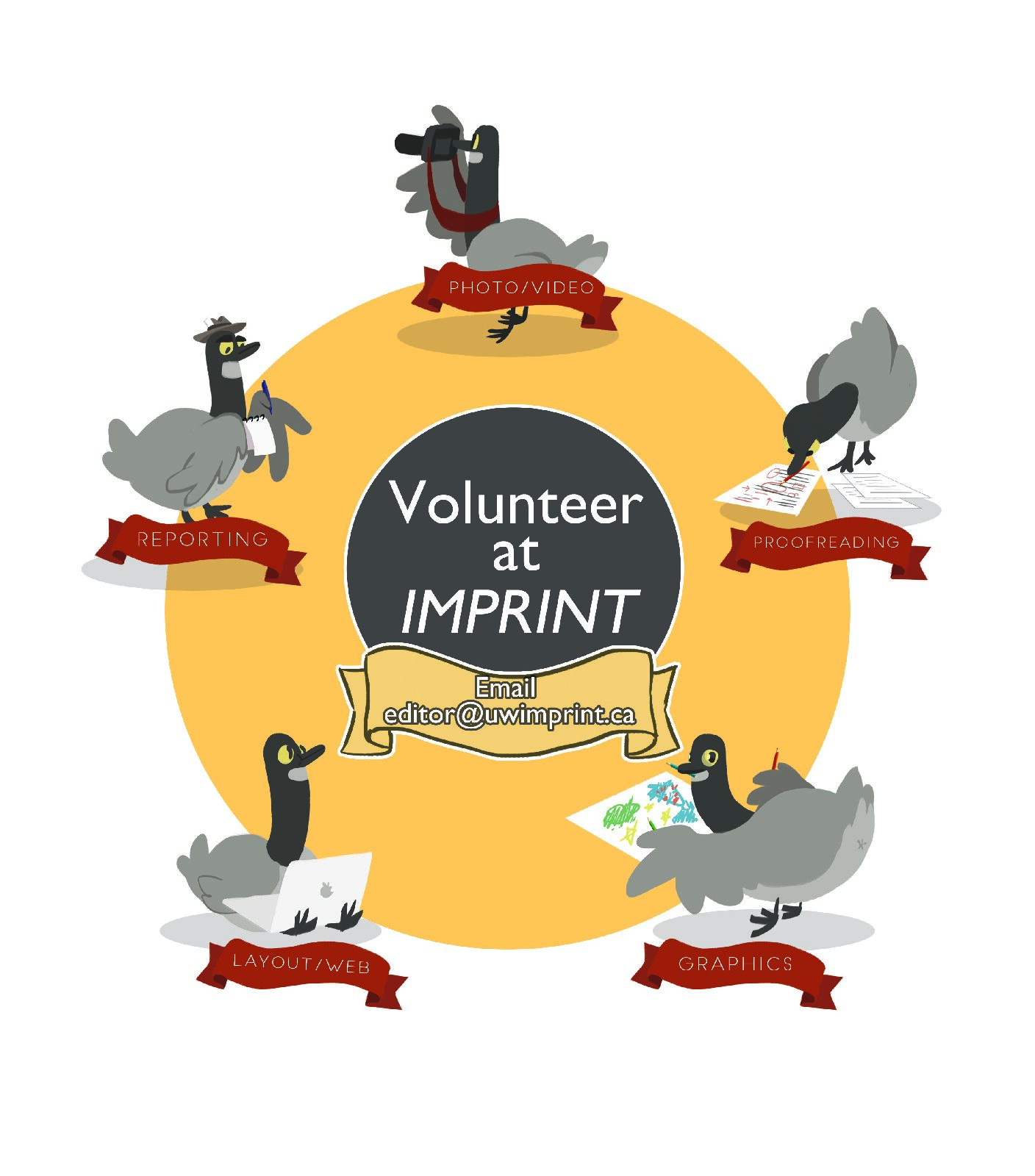After an illustrious five-year Warrior tenure full of accolades, awards and recognition, Jordan Dyck now has his eyes on making the Canadian national volleyball team with the hopes of competing in a future Summer Olympic Games. </p>
“My ultimate goal obviously is to make it onto a Canadian national Olympic team,” Dyck said. “The Summer Olympics are in 2016. [There is a] 99 per cent chance I won’t make it, but you always have to dream big and hope for the best. The Olympics are definitely something I would want to do.”
Although the 2016 Olympics may seem unlikely, Dyck believes that the 2020 Summer Olympics in Tokyo is more realistic.
Chris Lawson, head coach of UW’s men’s volleyball team, said that although “it’s a long process,” he thinks Dyck has an “excellent chance to make the national team.” He also thinks the 2020 games are a more realistic goal for Dyck, since volleyball players hit their professional, athletic and mental peak in their late 20s.
“It’s not just about physicality, it’s about finding the perfect balance between physicality and reaction,” Lawson said.
Dyck determined in first year that he wanted to continue with volleyball professionally when he finished number one in his block not only in Ontario, but also in Canada. That’s when Lawson convinced the junior national team to give Dyck an opportunity at one of thier tryouts, where he got to gauge the level of play required to make it to the top.
“I went for a tryout there, which kind of opened my eyes to see that the level of play around Canada is so high,” Dyck said. “I’d really need to work hard if I wanted to go on with volleyball after school. So every year, I just worked away at getting better.”
The first step of his journey will take him to Gatineau, Quebec, the site of the Canadian National Training Centre, where he was invited to try out for the national B team — the roster of players that the national team draws from in case of injury. However, even if Dyck makes the B team, it is still unlikely that he will get called up in time for the 2016 Rio de Janerio Summer Games, barring an injury to someone on the A team.
“They have a lot of guys on the A team, which is the Olympic team, so the team I’m going to be trying out for in May will be like the practice squad with the A team. Maybe we get called up if someone in the A team is hurt,” Dyck said. “I’m going to those tryouts, hoping to make that and really hoping to get accepted to the full-time training center in September … This training centre is basically a stepping stone to making a national team.”
Players train for six to eight months from September to May at the training centre — with all accommodations included — instead of going to school or playing in one of Europe’s pro leagues.
“So instead of going and trying to find a pro contract overseas somewhere, players go to develop more and get some real insights from real pros,” Dyck said. “I don’t want to go overseas and burn out after a year — I want to have a career for a few more years. This will really help get the skills I need and get insider knowledge that Team Canada has. They definitely have their own tips and secrets.”
He believes training in the same centre as Team Canada gives him the exposure and platform he needs to attract scouts — including those from the European pro leagues.
“[Team Canada] wants to invest in me as an athlete, so they want to find a good team for me with good coaching, good facilities, good health and therapy.” Dyck said “I don’t really need to do all the legwork and make connections by myself. I have Team Canada behind me and their connections to help me find the best fit for me, instead of me trying to persuade and network my way into somewhere.”
Lawson agreed: “There is no question he can find a pro contract without going through the National Team Training Centre, but that’s not really the best way to do it.
“Team Canada acts like a bit of an agent,” Lawson said, and they make sure their players get good conditioning, good therapy and good coaches committed to developing these athletes. Rather than “jumping in the pool” and finding an unknown agent, it’s more feasible to take this route.
“As a middle blocker, there is no question he’ll find a team to play for. It’s the rarest position out there, it’s a position that’s always in demand,” Lawson said. “There is no doubt he’ll get a pro contract, it’s about finding the right contract in the right place.”
During his time as a Warrior athlete, Dyck not only became a leader, but his involvement with athletics helped him in the maturation process. Dyck has had a lot of growth over the last five years, honing his emotions, he said, which helped him deal with the mental side of the game and tame his competitive nature.
“We got a sports psychologist in my third year, which helped a lot with handling diversity and tough times,” Dyck said. “It was a lot of everyone having to buy into having acceptance of guys doing wrong. That was a tough thing for me because in my mind a play is pretty easy, and if someone messes up, I learned not to physically show my disappointment. I learned to just say to myself, ‘there’s a million other plays, you’ll get the next one.”
Although his competitive nature has gotten him this far, Lawson believes at times it could hinder his progress.
“It’s a double-edged sword though. You have to be able to relax as well and let things come to you; you can’t always push your way through things,” Lawson explained. However, he has no doubts Dyck will reach his goals.
“Leading by example, no one works harder, no one wants to be more successful than him,” Lawson said. “I have never met anybody that had the need to succeed as much as he has.”





























